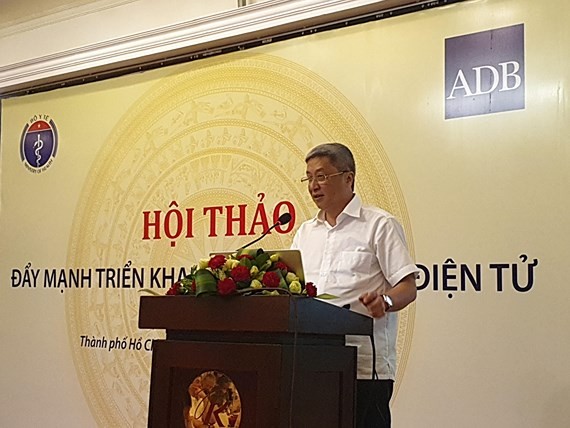
Acceleration of the electronic medical records (EMR) implementation in health institutions countrywide was dícussed at the seminar with the participation of representatives of health departments and IT companies.
Presently, the health sector is building smart medicine with three pillars including smart management, smart infirmary and smart medical records. The Ministry has approved the IT application project in district-level clinics for the period 2018-2020.
According to the plan, electronic medical record will be implemented nationwide from July, 2019.
Tran Quy Tuong from the IT Department of the ministry said that his department has built EMR from June, 2018 and the software’s trial operation has been successfully carried out in the southern province of Ba Ria-Vung Tau and the central province of Nghe An so far.
As for electronic health statistic software, it has been experimented in 14 provinces to date and it will launched nationwide this year. To date, most medical institutions have adopted IT in different level and most of grass-root medical clinics’ system have connected to assess insurance payment.
Participants said that the health sector bumped into difficulties in implementing IT because district-level medical clinics’ systems have not been fully connected to share data mutually.
They petitioned the Ministry to connect electronic medical software and other software such as hospital information systems to facility treatment procedure.
Addressing the seminar, Deputy Minister of Health Nguyen Truong Son said the implementation of EMR contributes to management of the population and helps people understand clearly their health condition to actively prevent diseases.
Additionally, EMR helps to provide physicians with full information of patients; therefore, physicians can have precise diagnosis and early detect illness.
























